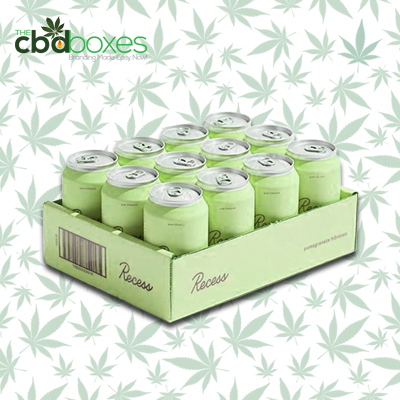In today’s fast-paced world, the packaging of products has become an essential aspect of the marketing mix. A product’s packaging is the first impression a customer gets when they come across it, and it can either make or break the product’s success in the market. Beverage packaging boxes are no exception to this rule. In this article, we will discuss everything you need to know about beverage packaging boxes, including their types, materials, benefits, and the latest trends in the industry.
Types of Beverage Packaging Boxes
Beverage boxes come in various types, each with unique benefits. The most common types of beverage boxes include:
Folding Cartons
Folding cartons are the most common type of beverage packaging box. They are made from paperboard and are designed to fold into a box shape, making them easy to store and transport. Folding cartons are available in various sizes and designs and can be customized to suit the product’s specific needs.
Corrugated Boxes
Corrugated boxes are stronger and more durable than folding cartons. They are made from a combination of paperboard and fluted cardboard, which makes them ideal for shipping and storage. Corrugated boxes come in various sizes and can be customized to fit the product’s needs.
Rigid Boxes
Rigid boxes are the most luxurious type of beverage packaging. They are made from high-quality materials, such as thick paperboard, and are designed to be sturdy and long-lasting. Rigid boxes are often used for high-end products like wine and spirits.
Materials Used in Beverage Packaging Boxes
The materials used in beverage packaging boxes are crucial to the product’s success. The most common materials used in beverage boxes include:
Paperboard
Paperboard is the most common material used in beverage packaging boxes. It is lightweight, easy to print on, and easily folded into a box shape. Paperboard is also recyclable, making it an eco-friendly option.
Corrugated Cardboard
Corrugated cardboard is a popular material used in beverage boxes because of its strength and durability. It is made from a combination of paperboard and fluted cardboard, which makes it ideal for shipping and storage.
Plastic
Plastic is a versatile material used in beverage packaging boxes. It is lightweight, durable, and can be molded into various shapes and sizes. However, plastic is less eco-friendly than other materials and can take hundreds of years to decompose.
Benefits of Beverage Packaging Boxes
Beverage packaging boxes offer several benefits to the product and the consumer. Some of the benefits include:
Protection
Beverage boxes are designed to protect the product from damage during transportation and storage. They provide a barrier against moisture, light, and other external factors affecting the product’s quality.
Branding
Beverage packaging boxes offer an excellent branding opportunity. They can be customized with the product’s logo, colors, and other graphics, making them easily recognizable and memorable.
Convenience
Beverage packaging boxes are designed to be convenient for the consumer. They are easy to open, store, and transport, making them ideal for on-the-go consumption.
Latest Trends in Beverage Boxes
The beverage packaging industry continually evolves, and new trends are emerging to meet the market’s changing needs. Some of the latest trends in beverage packaging boxes include:
Sustainable Packaging
Sustainability has become a hot topic recently, and the beverage packaging industry is no exception. Many companies now use eco-friendly materials, such as paperboard and biodegradable plastics, to reduce their carbon footprint and appeal to environmentally conscious consumers.
Innovative Designs
Innovative designs are becoming more popular in the beverage packaging industry. Companies are experimenting with new shapes, sizes, and materials to create unique and eye-catching packaging that stands out on the shelves.
Personalization
Personalization is another trend in the beverage packaging industry. Companies use digital printing technology to create customized packaging that appeals to consumers’ preferences and tastes.
Choosing the Right Beverage Packaging Box
Choosing the right beverage packaging box can be a daunting task. Here are some factors to consider when selecting the right packaging box for your product:
Product Type
The type of product you are packaging will determine the type of beverage packaging box you need. For example, if you are packaging a carbonated beverage, you will need a box to withstand the pressure and prevent the product from spilling.
Shelf Life
The shelf life of your product will also determine the type of packaging box you need. A rigid box made from high-quality materials may be more appropriate for products with a long shelf life, such as wine.
Branding
Branding is an essential factor to consider when selecting a beverage packaging box. The packaging should reflect the product’s branding and appeal to the target audience.
Beverage packaging boxes are an integral part of the marketing mix and can significantly impact a product’s success. When selecting a beverage packaging box, it’s essential to consider factors such as product type, shelf life, and branding. The latest trends in the beverage packaging industry include sustainable packaging, innovative designs, and personalization. By selecting the right packaging box, companies can ensure their product stands out on the shelves and appeal to their target audience.
Are beverage packaging boxes recyclable?
Yes, beverage boxes made from paperboard or biodegradable plastic are recyclable.
Can I customize my beverage packaging box?
Yes, beverage packaging can be customized with your product’s branding, logo, and graphics.
What is the most popular type of beverage packaging box?
Folding cartons are the most common type of beverage packaging box.
How do I choose the right beverage packaging box for my product?
When selecting the right beverage packaging box, consider product type, shelf life, and branding.
Can I use a rigid box for all types of beverages?
Yes, it can be used for most beverages. However, rigid boxes are typically used for high-end products such as wine and spirits.
Are there any regulations or standards for beverage packaging boxes?
Yes, various regulations and standards for beverage boxes exist, including the FDA’s food contact materials regulations and industry-specific standards such as the Sustainable Forestry Initiative (SFI) for paper-based packaging.
Can sustainable packaging be cost-effective?
While sustainable packaging may have a higher initial cost, it can often be more cost-effective in the long run by reducing waste and improving brand reputation.
What are some innovative designs in beverage packaging boxes?
Innovative designs include unique shapes, sizes, and materials such as aluminum cans or biodegradable plastics.
Can beverage packaging boxes be used for hot beverages?
Yes, some beverage packaging are designed specifically for hot beverages such as coffee or tea and are made from materials that can withstand high temperatures.
How important is branding in beverage boxes?
Branding is essential in beverage packaging to help a product stand out on the shelves and appeal to the target audience. A well-designed, branded packaging box can also improve brand recognition and customer loyalty.
Overall Importance of Beverage Packaging Boxes
Beverage packaging boxes play a crucial role in the success of a product. They protect the product during transportation and storage and act as a marketing tool by attracting consumers’ attention and communicating the brand’s message. Consumer demands for eco-friendly and visually appealing packaging drive the latest trends in the beverage packaging industry, including sustainable packaging, innovative designs, and personalization. Companies that invest in high-quality and innovative beverage boxes can improve their brand reputation, increase sales, and stand out in a crowded market.


